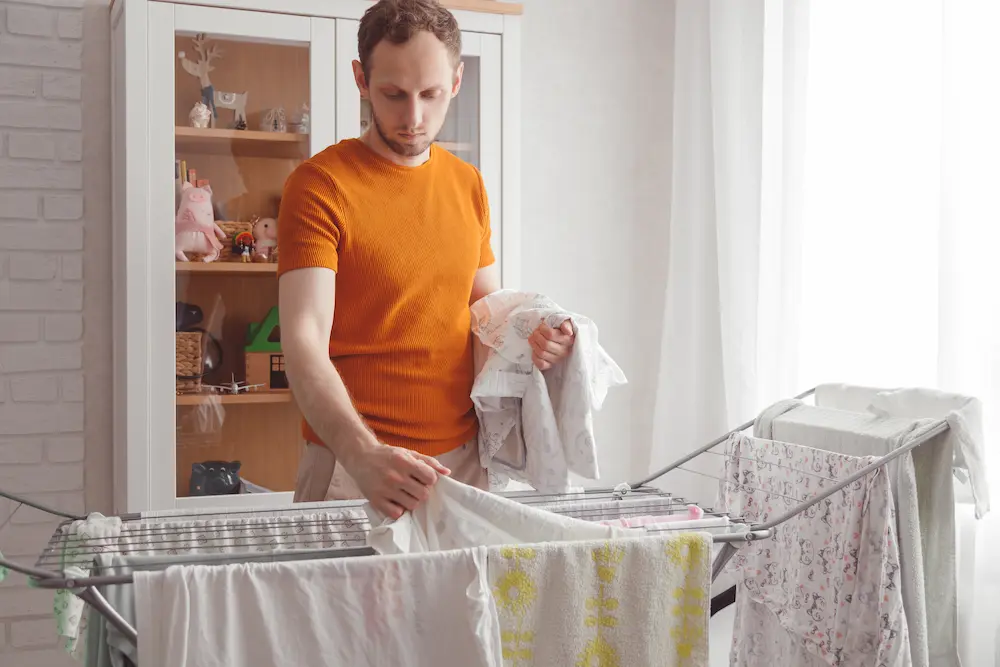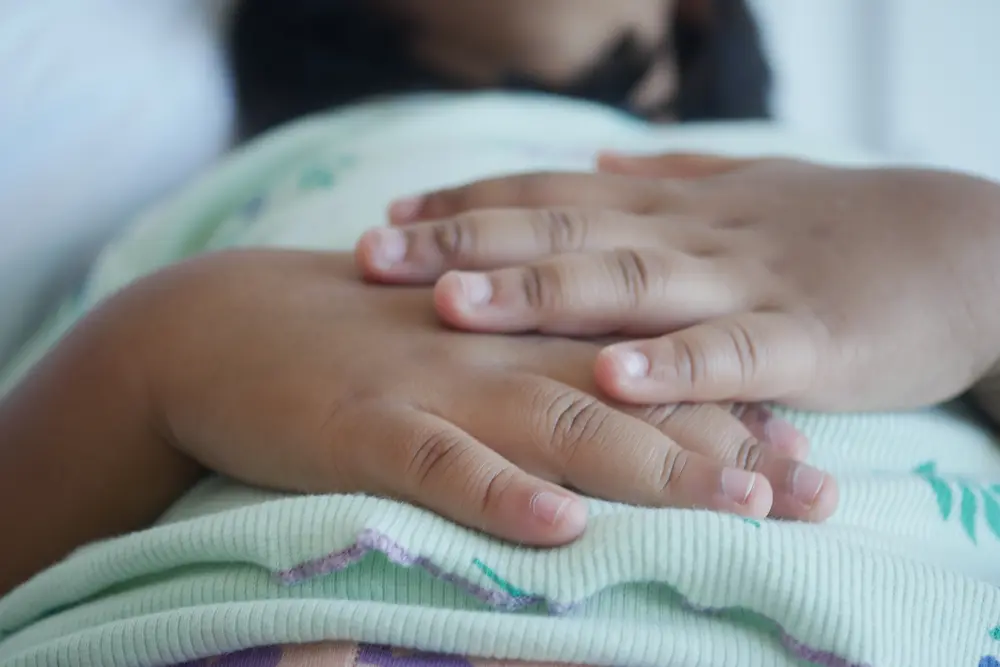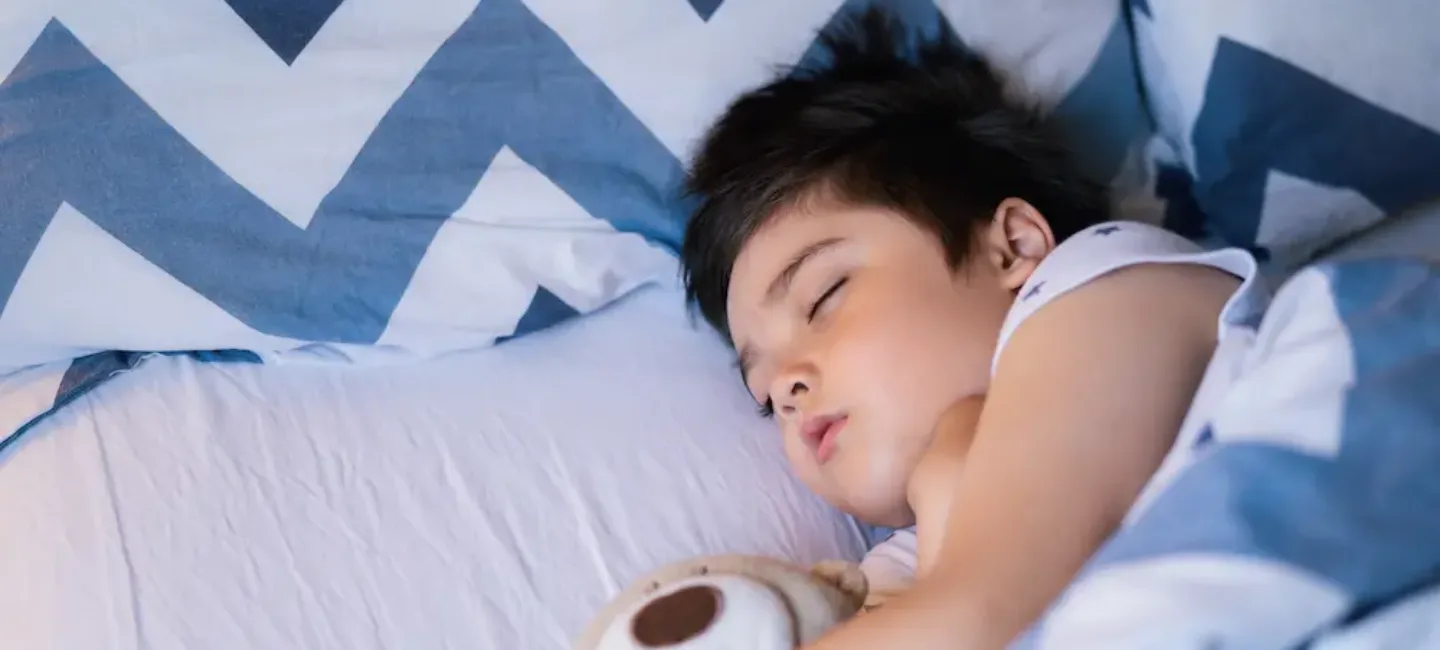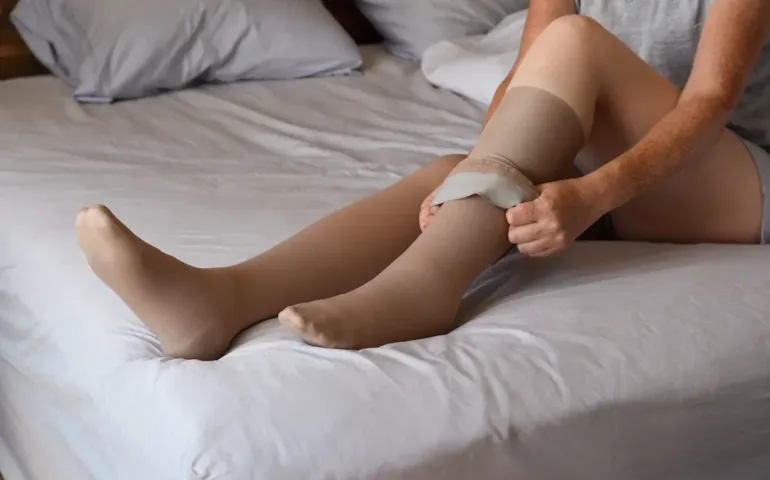
Your child is supposed to have achieved continence (both daytime and nighttime), and yet, accidents can still happen at night. This is called enuresis (or “bedwetting”), which refers to the involuntary act of urinating while asleep. Is it serious? How should you react?
Understanding the reasons behind involuntary nighttime urination and knowing how to put the situation into perspective: here’s everything you need to know about childhood enuresis.
Understanding enuresis in children
Enuresis, often called “bedwetting”, is a situation that can worry many parents. To better understand this phenomenon, it is essential to first distinguish enuresis (nocturnal), which we will discuss here, from other types of urinary leaks (which can also be daytime, meaning they occur during the day). Here’s a detailed overview of the characteristics of enuresis in children and the different forms it can take.
What is enuresis?
Enuresis is characterized by involuntary urination (“weeing”) that occurs at night, while your child is sleeping deeply. Enuresis is generally referred to in children over the age of five, at which point most have normally achieved bladder control.
Enuresis can be a source of stress for your child, affecting their self-confidence and emotional well-being. Nighttime wetting can also disrupt your child’s sleep and cause daytime fatigue.
Good to know: more than 1 in 10 children between 5 and 7 years old in France experience enuresis, so don’t panic!
The different types of enuresis
Enuresis can manifest in two main forms: primary nocturnal enuresis and secondary nocturnal enuresis.
- Primary nocturnal enuresis: this form occurs when the child has never achieved full nighttime continence. It is often related to a slower development of bladder capacity to hold urine or to difficulties waking up at night.
- Secondary nocturnal enuresis: this occurs in a child who has already been dry at night for at least six months but starts wetting the bed again. This form can be associated with emotional factors or changes in the child’s environment, but it may also be related to a medical condition such as a urinary tract infection, kidney issues, or even the onset of diabetes.
In all cases, if nothing suggests an underlying medical problem, it is essential to maintain a positive attitude and encourage your child. It’s important to avoid dramatizing the situation and to understand that this phenomenon is often temporary and can be managed with the right support. Solutions do exist!
Causes of enuresis in children
Enuresis in children is a complex phenomenon influenced by various factors (some of which we mentioned earlier). Here’s an overview of the main ones.
Physiological factors
The physiological causes of enuresis may include medical and genetic aspects.
- Bladder development: some children’s bladders develop more slowly, which can limit their capacity to hold urine at night. This may be a common cause of nighttime wetting.
- Family history: enuresis has been observed to be hereditary. If one or both parents experienced enuresis during childhood, the child is more likely to experience it as well.
- Insufficient production of vasopressin: this hormone normally reduces urine production at night. Some children do not produce enough vasopressin, leading to overproduction of urine during the night.
- Health problems: medical conditions such as urinary tract infections or hyperactivity can also be underlying causes of enuresis. In these cases, it is important to consult a doctor or urologist for a proper diagnosis.
Psychological and environmental factors
Emotional and contextual influences also play a significant role in the occurrence of enuresis.
- Stress and anxiety: stressful situations such as changes in family life (moving, the arrival of a new baby) can trigger or worsen nighttime enuresis.
- Sleep environment: ensuring easy access to the toilet and a reassuring atmosphere can help your child manage nighttime urination.
- Parental reactions: it is important to avoid dramatizing the situation and to avoid any form of punishment, as this could increase your child’s anxiety and, consequently, the enuresis.

Solutions and treatments for enuresis
There are many solutions to help your child overcome an episode of enuresis.
Lifestyle and dietary treatments
Adopting simple changes in your child’s daily routine and diet can help treat enuresis.
- Hydration: encourage your child to drink enough water during the day, while limiting drinks two hours before bedtime (to just one glass of water at dinner, for example) to reduce nighttime urination.
- Bedtime routine: establish a calming routine that includes going to the toilet before bed to empty the bladder and reduce the risk of wetting the bed.
- Easy access to the toilet: make sure your child can easily get to the toilet at night by leaving a night light on to guide them and choosing easy-to-remove pajamas.
- Diet: avoid stimulating foods and drinks, such as chocolate or sodas, especially in the evening, as they can increase urine production.
Medical interventions
If lifestyle and dietary adjustments are not enough, medical interventions may be considered, under your doctor’s advice.
- Enuresis alarms: these devices emit a sound when the child begins to wet the bed, helping them wake up to go to the toilet. They are often recommended as a first-line treatment.
- Medication: in some cases, medication may be prescribed to reduce nighttime urine production. This treatment is usually used as a second-line option or alongside an alarm.
- Medical consultation: if enuresis persists, it is important to consult a doctor or urologist who can evaluate the situation, rule out underlying causes such as urinary tract infection or bladder hyperactivity, and propose an appropriate treatment plan.
By combining these approaches, you can help your child achieve nighttime continence and strengthen their self-confidence. Remember, every child progresses at their own pace.

When to worry and consult a doctor?
Enuresis in children is most often explained by fatigue, with the brain too tired to wake the child up (often related to the end of napping). Most cases of enuresis are therefore temporary, but certain signs may encourage you to consult a doctor for an accurate diagnosis and, if necessary, appropriate treatment.
Here are the situations where consultation is recommended:
- Child’s age: if your child continues to wet the bed regularly after age 6, it is advisable to see a pediatrician. At this age, most children have achieved nighttime continence, and a medical check may be needed to understand the underlying causes.
- Sudden changes: if a child who was dry at night suddenly starts wetting the bed again, this could be a sign of stress, emotional change, or even a urinary tract infection. A medical consultation can help identify and address the cause.
- Associated symptoms: if enuresis is accompanied by other symptoms such as pain when urinating, excessive thirst, weight loss, or frequent daytime urination, this may indicate more serious medical issues requiring attention.
- Emotional impact: when enuresis affects your child’s self-confidence, causes anxiety, or interferes with social activities, do not hesitate to seek help from a healthcare professional for psychological support and tailored advice.
- Lack of progress: if, despite efforts to help your child achieve nighttime continence, there is no improvement after several months, a consultation with a urologist may be helpful to explore bladder re-education options or other medical treatments.
It is also important to know whether enuresis is isolated or accompanied by daytime urinary problems. In that case, those issues must first be addressed so your child can enjoy peaceful nights without diapers.
In this case, we invite you to watch for the following signs:
- Daytime leaks, especially during physical exertion or laughter,
- The urgent need to urinate (urgency),
- or very frequent urination (pollakiuria).
Remember that enuresis is a common and often temporary issue. If in doubt, do not hesitate to consult your doctor for personalized advice.
Want to learn more? Feel free to download the May app, where you’ll find plenty of resources to support and guide you throughout your journey as a new parent.

Tips for supporting a child with enuresis
With the right tools and a positive attitude, you can help your child navigate this stage with confidence.
- Talking to them: talking to your child about enuresis is often enough to put the situation into perspective. Explain that wetting the bed is a common phenomenon that affects many children and that there is nothing to be ashamed of. Celebrate every progress, no matter how small, to boost their confidence.
You can also rely on children’s books that address the subject and read them together. We have prepared a list of recommended readings, available on the May app.
- Encouraging them: don’t hesitate to praise your child after every dry night. This encouragement strengthens their desire to persevere.
- Reassuring them: explain that it happens when they are very tired and that it won’t last. However, if the problem persists every night from the age of 6, it is best to consult a doctor.
The key to supporting a child with enuresis? A caring approach. Make sure to downplay the situation and praise them when they manage to stay dry rather than showing frustration when they don’t. By creating calming routines and fostering open communication, you can help your child gain confidence and move toward nighttime continence.

**
Photos: towfiqu98 | wirestock | Vladdeep | annann_9 | Prostock-studio
This text was translated from French by an artificial intelligence. The information, advice, and sources it contains comply with French standards and may therefore not apply to your situation. Make sure to complement this reading by visiting the May US/UK app and consulting the healthcare professionals who are supporting you.




